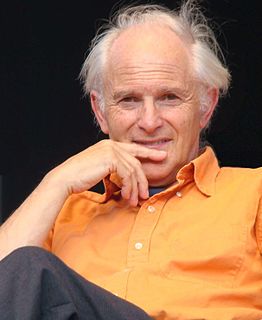A Quote by Jerry A. Coyne
Religion is based on dogma and belief, whereas science is based on doubt and questioning.
Related Quotes
Religion is based upon blind faith supported by no evidence. Science is based upon confidence that results from evidence - and that confidence can be modified and/or reversed by further observations and experimentation. Science approaches truth, closer and closer, by hard dedicated work. Religion already has it all decided, and it's in the book. It's dogma, unchangeable, and unaffected by reality and whatever facts we come upon in the real world.
Religion is not based on belief or faith: religion is based on awe, religion is based on wonder. Religion is based on the mysterious that is your surround. To feel it, to be aware of it, to see it, open your eyes and drop the dust of the ages. Clean your mirror! and see what beauty surrounds you, what tremendous grandeur goes on knocking at your doors. Why are you sitting with closed eyes? Why are you sitting with such long faces? Why can't you dance? and why can't you laugh?
Science is based solely on doubt-based, disinterested examination of the natural and physical world. It is entirely independent of personal belief. There is a very important, fundamental concomitant - that is to accept absolutely nothing whatsoever, for which there is no evidence, as having any fundamental validity.
If a state political organization is founded in part upon a state religion with a dogma based on one or a few 'official' prophets, then shamanism, where every shaman is her or his own prophet, is dangerous to the state. [...] Shamanism, as I said, is not a religion. The spiritual experience usually becomes a religion after politics has entered into it.
My interests drew me in different directions. On the one hand I was powerfully attracted by science, with its truths based on facts; on the other hand I was fascinated by everything to do with comparative religion. [...] In science I missed the factor of meaning; and in religion, that of empiricism.



































